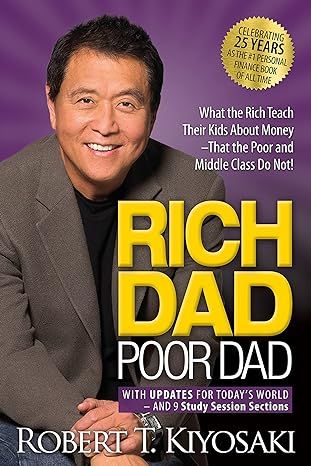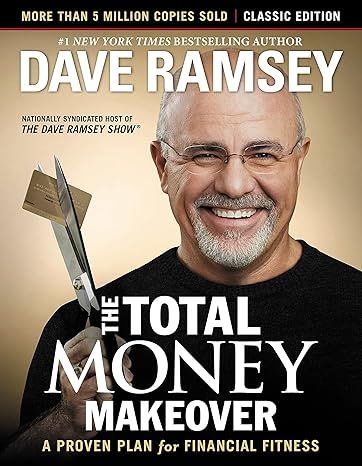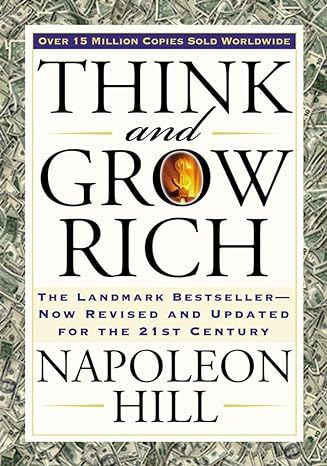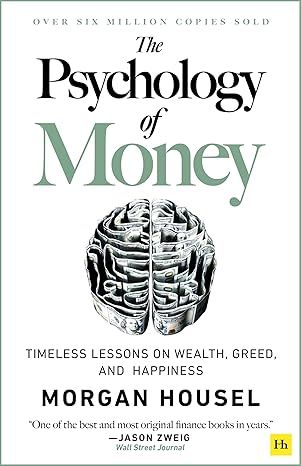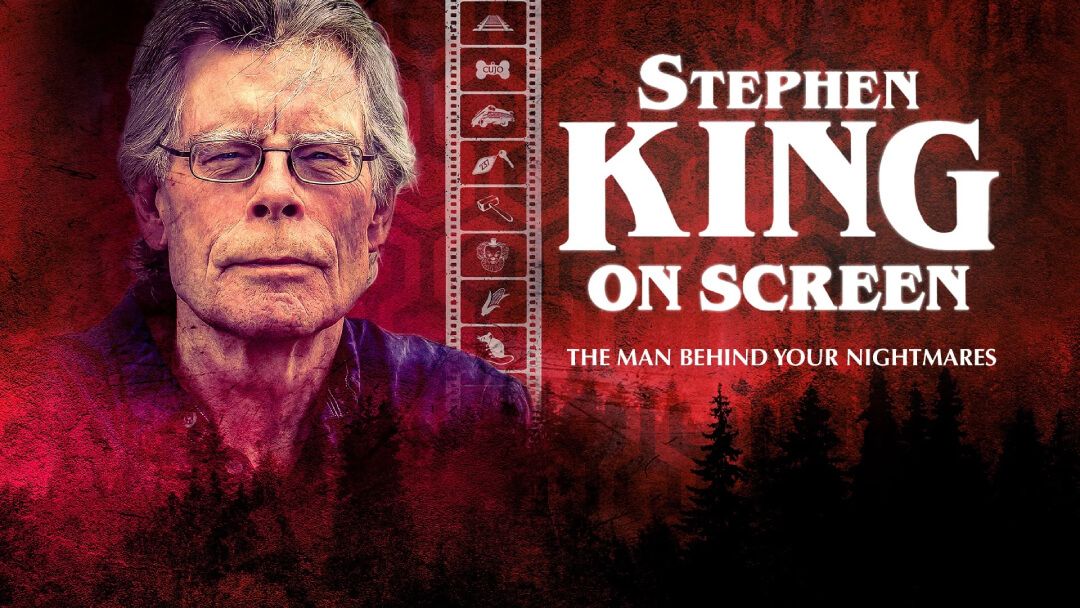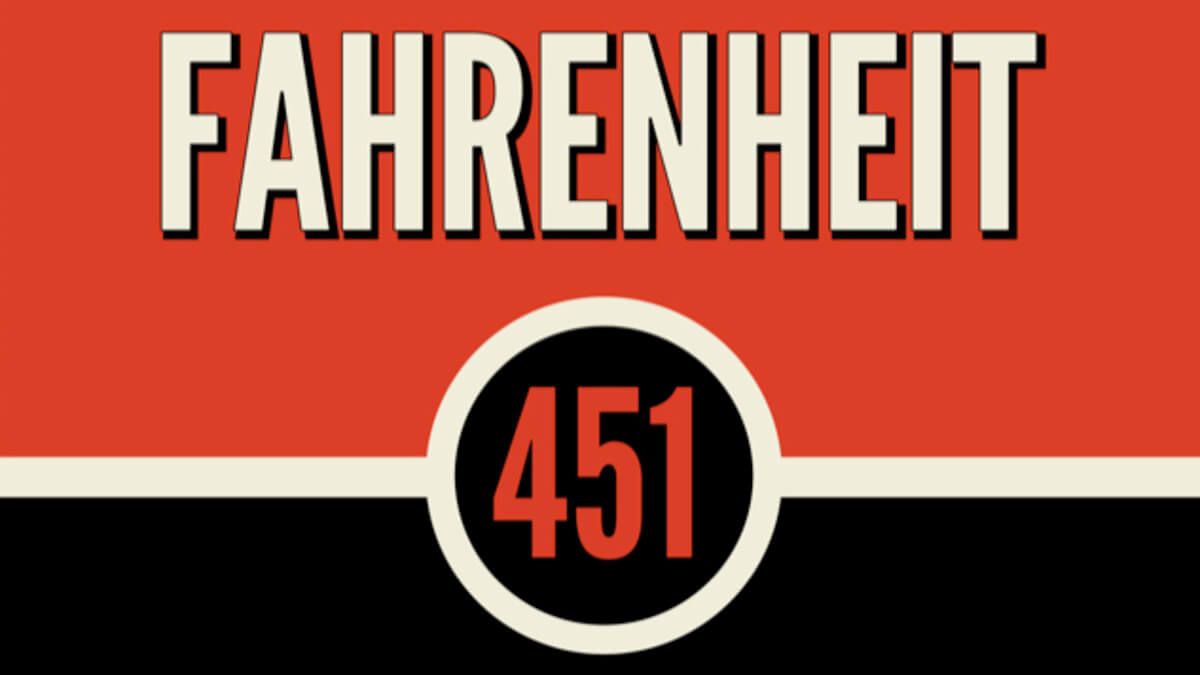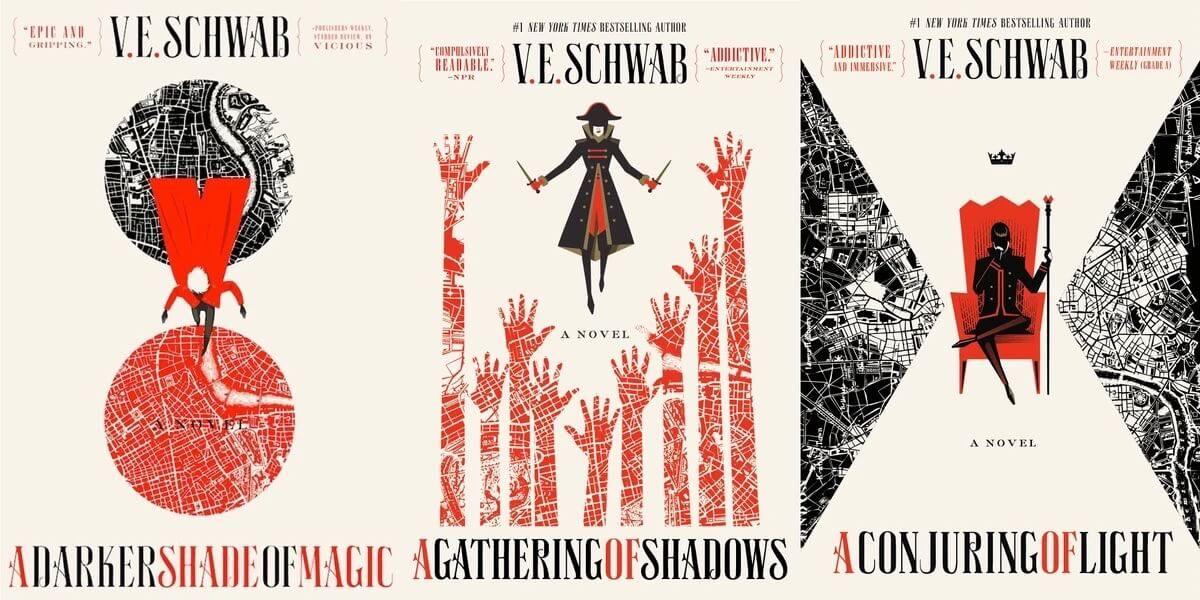Managing personal finances is a skill that’s essential yet often underappreciated. In a world where financial freedom is increasingly associated with security, mental well-being, and even life satisfaction, building a solid financial foundation has become more crucial than ever.
These books not only break down complex financial concepts but also provide step-by-step roadmaps tailored to real-life challenges and goals. Many of these titles share inspiring stories, actionable advice, and strategies that have helped countless readers build healthier financial habits and grow their wealth over time.
Whether you’re a novice looking to master the basics or a seasoned saver ready to explore wealth-building strategies, these books offer a treasure trove of knowledge and inspiration to transform your financial future.
1. Rich Dad Poor Dad by Robert Kiyosaki
Rich Dad Poor Dad is often considered a foundational personal finance book. Kiyosaki contrasts the financial approaches of his "rich dad" and "poor dad," highlighting key differences in mindset. This book provides insights into asset accumulation, liabilities, and how to make your money work for you, inspiring readers to rethink conventional financial wisdom and embrace the importance of financial literacy.
The book was normally self-published in 1997 before being picked up commercially to become a New York Times bestseller. It has since sold over 32 million copies and become a household name.
2. The Total Money Makeover by Dave Ramsey
Dave Ramsey’s The Total Money Makeover is a no-nonsense, step-by-step guide to taking control of your finances. Ramsey’s "baby steps" method helps readers eliminate debt, build an emergency fund, and invest for the future. Known for his tough-love approach, Ramsey emphasizes the importance of budgeting and living within your means, making this book ideal for those ready to make a complete financial turnaround.
The seven baby steps are:
- Save a $1,000 beginner emergency fund.
- Get out of debt using the debt-snowball method. This means to list all debts arranging them by smallest to largest amount. Make only the minimum payments on all except the smallest debt. Use any available money to pay as much as possible to the smallest debt. When the smallest debt is paid off, add that money to the payments of the next smallest debt. Repeat until all debts except the house mortgage are paid off.
- Save a proper emergency fund that is 3-6 months of expenses.
- Invest 15% of household income for retirement.
- Save for children's college.
- Pay off the home early.
- Build wealth and be generous.
3. Your Money or Your Life by Vicki Robin and Joe Dominguez
In Your Money or Your Life, Robin and Dominguez challenge readers to examine the relationship between money and life satisfaction. The book introduces a nine-step program that focuses on tracking spending, reducing unnecessary expenses, and aligning financial decisions with personal values. It’s an essential read for those seeking financial independence and a deeper understanding of how money impacts life satisfaction.
4. The Millionaire Next Door by Thomas J. Stanley and William D. Danko
The Millionaire Next Door by Thomas J. Stanley and William D. Danko is a classic in personal finance that debunks myths about wealth in America. Through extensive research, Stanley and Danko reveal that many self-made millionaires live modest, often frugal lives—unlike the stereotypical image of luxury. They categorize individuals into two main types: "UAWs" (Under Accumulators of Wealth), who live paycheck-to-paycheck despite high incomes, and "PAWs" (Prodigious Accumulators of Wealth), who amass wealth by saving, investing, and living below their means.
The book highlights key traits of wealthy individuals, such as budgeting, avoiding debt, valuing financial independence over materialism, and teaching their children similar values. Rather than flashy cars or expensive homes, millionaires tend to invest in assets and prioritize long-term financial security.
5. I Will Teach You to Be Rich by Ramit Sethi
Ramit Sethi’s I Will Teach You to Be Rich is a practical guide to mastering your finances without sacrificing what you enjoy. With a focus on automating your money and investing wisely, Sethi offers straightforward advice on managing savings, retirement funds, credit cards, and spending. His humorous and relatable style makes this book approachable for readers of all financial backgrounds.
6. The Simple Path to Wealth by JL Collins
Originally inspired by letters to his daughter, The Simple Path to Wealth by JL Collins is a comprehensive introduction to investing. Collins simplifies complex investing topics, focusing on low-cost index funds and the power of compound interest. His approach is ideal for those seeking to grow their wealth with minimal effort, emphasizing the importance of a disciplined, long-term strategy.
7. Think and Grow Rich by Napoleon Hill
Think and Grow Rich by Napoleon Hill by Napoleon Hill is a classic self-help book that focuses on the mindset and principles behind achieving wealth and success. Hill studied the habits of over 500 wealthy individuals, including figures like Andrew Carnegie and Henry Ford, to identify the common traits and beliefs that contributed to their achievements. The book emphasizes that success is primarily a result of adopting the right mindset, rather than relying on luck or education alone.
Hill presents a 13-step formula for achieving success, which includes concepts like desire, faith, autosuggestion, specialized knowledge, and persistence. He believes that the process starts with having a clear, burning desire for one’s goal, followed by unwavering faith in its attainment. By using the power of visualization, affirmations, and self-discipline, individuals can condition their minds to seek opportunities, overcome obstacles, and stay committed.
8. The Psychology of Money by Morgan Housel
The Psychology of Money by Morgan Housel explores the powerful role psychology plays in our financial decisions, emphasizing that how we think and feel about money often has a more significant impact than financial expertise alone. Housel presents 20 thought-provoking lessons on the ways our biases, personal experiences, and emotional tendencies shape how we save, spend, and invest.
Unlike traditional finance books focused on technical strategies, Housel dives into the behavioral side of finance—why people make irrational financial choices, how risk perception varies, and why long-term success often relies more on humility and patience than on intellect. He argues that understanding one’s own values and psychology around money is key to building a sustainable financial future.
9. Financial Freedom: A Proven Path to All the Money You Will Ever Need by Grant Sabatier
Grant Sabatier’s Financial Freedom shares his journey from having just $2.26 in his bank account to reaching financial independence in less than five years. This book focuses on the principles of wealth accumulation, including side hustles, smart investing, and reducing expenses. Sabatier’s hands-on advice is both inspiring and practical, making this an excellent guide for those seeking an accelerated path to financial freedom.
10. The Intelligent Investor by Benjamin Graham
The Intelligent Investor by Benjamin Graham is a foundational book on value investing that provides a disciplined approach to investing with a focus on minimizing risk and preserving wealth over the long term. Graham, known as the "father of value investing," advocates for a cautious, well-researched investment strategy over speculation or chasing trends. His approach emphasizes the concept of intrinsic value, which involves buying stocks that are priced below their real worth and holding them until they reach or exceed that value.
Graham also introduces the concept of "Mr. Market," a metaphor for the stock market's unpredictable and often irrational behavior, encouraging investors to make decisions based on their own research and not on market sentiment.
Warren Buffett has famously praised The Intelligent Investor for its timeless wisdom, and its principles remain relevant to investors aiming for steady growth through a prudent, disciplined strategy.
How These Books Can Transform Your Financial Life
Each of these books offers a unique approach to building wealth, from mindset shifts to practical budgeting and investing strategies. By reading a variety of perspectives, you’ll gain a holistic understanding of personal finance and find tools suited to your goals. Whether you’re just beginning your journey or looking to refine your strategy, these books provide a roadmap to achieving financial security and independence.

